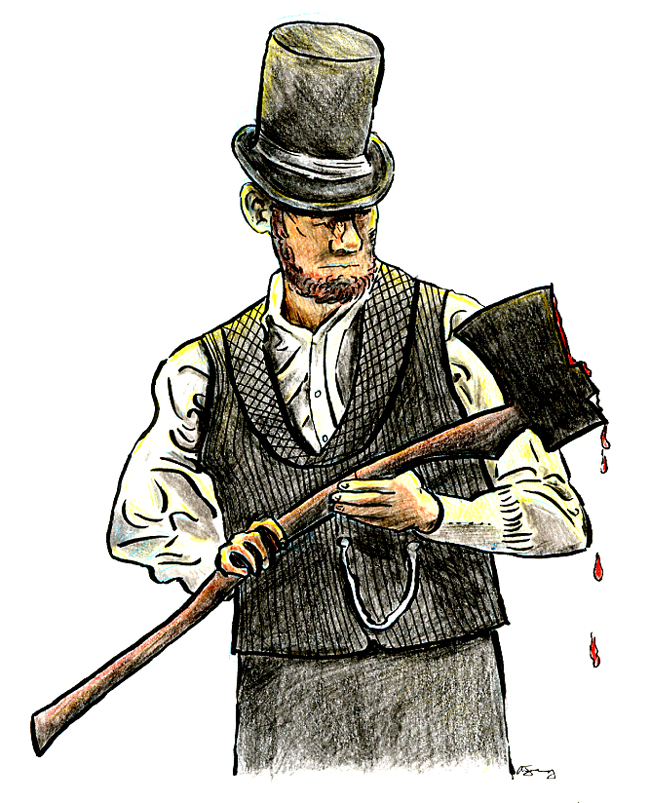A film with a title like “Abraham Lincoln: Vampire Hunter” is going to have to fight very hard to earn anything but a derisive snort, simply for its audaciously silly title. Fortunately, the film itself, adapted by Seth Grahame-Smith from his novel of the same name, strikes an appropriate balance between the serious and the ridiculous. The result is a unique, strangely patriotic twist on historical fiction.
The film’s premise is right there in the title, and director Timur Bekmambetov doesn’t waste any time getting to the meat of it. When Abraham Lincoln (Benjamin Walker) was just a boy, his mother’s death by vampire inspires a lifelong hatred of the undead. With the help of Dominic Cooper’s Henry Sturgess, Lincoln becomes a proficient vampire hunter, even as he chafes against the required anonymity of the job.
Timur Bekmambetov got his start in vampire fiction with his incomplete “Night Watch” trilogy. The vampires of “Abraham Lincoln: Vampire Hunter” are vicious, feral and menacing. Bekmambetov also stages some entertaining action scenes, full of slow-motion dismemberments and aggressive defiance of the laws of physics and logic. Even so, it seems like every major action beat takes place in a shapeless location where smoke or fog dominates the landscape.
While this can occasionally add mood to a scene, it comes across as lazy. In contrast, this spring, “The Raid: Redemption” staged some truly phenomenal action scenes because of the precise geography that the film’s director, Gareth Evans, laid out cleanly in every scene. Here, it seems like Bekmambetov simply wanted a crutch to lean on while editing these scenes together, and obscuring anything outside the immediate action was just the easiest way to ensure that.
A film like this also has to absolutely nail its casting, and the film asks a lot of the mostly unknown Benjamin Walker, who has to portray one of America’s most certifiable myths while adding a whole new level of ridiculousness to his legend. Fortunately, Walker does a pretty fine job. He’s got the build to portray Lincoln as an intimidating physical presence, and he brings a sense of decency and righteousness to the character — a genuine desire to make the world around him better, be it through the slaying of vampires or the freeing of slaves.
However, as “Abraham Lincoln: Vampire Hunter” goes on, the silliness becomes more and more pronounced, with the third act crippling every performance by saddling the human characters with distinctly bad old-age makeup. Benjamin Walker takes on the look of a plastic-y Liam Neeson, and Mary Elizabeth Winstead (playing Mary Todd Lincoln) simply gets a little grayer.
But the supporting cast never really shines, anyway — Winstead is horribly out of place in the film’s period setting. Anthony Mackie, who plays Will Johnson, Lincoln’s black best friend (yes, the movie isn’t exactly subtle), gets some noble moments but not much character to work with. Cooper seems to be having the most fun with his mentor figure, but even his performance too often veers towards campy, especially in his hilariously overwrought take on vampiric transformation.
“Abraham Lincoln: Vampire Hunter” is a uniquely American film. Abraham Lincoln is one of America’s most famous presidents, so to alter his myth so substantially, a film must approach the subject with not only confidence but also with respect. Thankfully, the film has nothing but respect for Lincoln, and it goes out of its way to show what a decent man he was in real life even as his fictional counterpart slaughters vampires. “Abraham Lincoln: Vampire Hunter” doesn’t offer up many surprises, but it delivers exactly what its title promises, which is more than enough to earn it a mild recommendation.





















